
Refineries: Inside Kyari’s desperate efforts to sell performance
Sopuruchi Onwuka
Since November when the Nigerian National Petroleum Company (NNPC) Limited declared re-streaming of some of its moribund refineries in Port Harcourt and Warri, doubts and controversies have drowned the open excitement obviously targeted by the national oil company which has been under protracted public indignation over the state of the decrepit processing facilities. These refining plants have been out of function since the All Progressive Congress took charge of government in 2014.

The skepticism is founded on the series of differing tales NNPC had churned out across past decades on why the refineries could not defy technical, funding and political challenges even with billions of dollars in rehabilitation attempts and huge overhead costs on the inoperative plants.
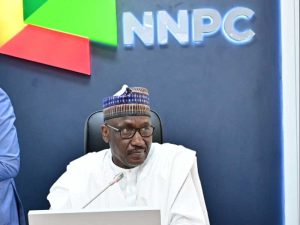
With little cheer from stakeholders after announcing resumption of operations, the refineries have witnessed more facility visit by strategic stakeholders than a religious pilgrimage to a holy land. On the contrary, expected flurry of actual offtake traffic by trucks, barges and ships is yet to be visible.
Several sections of eminent Nigerians, industry leaders, professional groups and government officials have been sponsored on facility visit to the refineries as the national oil company struggles to harness voices of validation and endorsement on the performance of its management. Only the sponsored visitors to the plants are visibly convinced that the plants are indeed working.
However, industry experts point out that restarting a refining plant would be different from running a sustainable operation. After all, nearly all the plants were actually shut down not because they were not running, but primarily because they were unable to create optimum value from their feedstock.
And when, in a television interview, former President Olusegun Obasanjo narrated how the NNPC had wasted all opportunities including private partnership and huge funding in failed efforts to revamp the refining plants, the national oil company promptly threw an open invitation to him in what appears to be an attempt to secure another endorsement from the eminent leader.
The fallouts of the hasty and thoughtless invitation to Chief Obasanjo are too petty to enrich any meaningful discourse on NNPC’s legendary rehabilitation of the Nigerian public refineries which started since the return of the nation’s government to political administration in 1999.
Like many other Nigerians, Chief Obasanjo is in good position to doubt any claim that the refineries have suddenly returned to full stream after over 30 years of poor handling and protracted inactivity. He was privileged to take over the government from the deleterious military junta which ran the country down from October 1, 1979 to May 29, 1999.
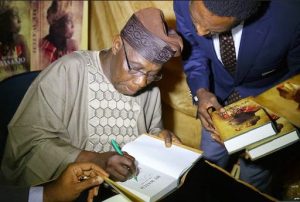 Former President Olusegun Obasanjo
Former President Olusegun Obasanjo
And within the 20 year downturn, Major General Muhammadu Buhari occupied the helms of government from December 31, 1983 to August 27, 1985. He also returned as de facto prime minister and head of the economy under the harmful regime of General Sani Abacha between November 17, 1993 and June 8, 1998. He directly involved in the disabling of the petroleum industry and the national oil company through the infamous Petroleum Special Trust Fund (PTF).
When he returned to power in 2014 as civilian president, Buhari proved skeptics right that he could only get the petroleum industry, the NNPC, and the refineries worse. Under his watch, oil production declined, oil theft intensified, insecurity overwhelmed the nation and investors fled the country. And by the time Buhari left office in 2023, the entire national socio-economy was in shambles and under a huge pile of debilitating debts.
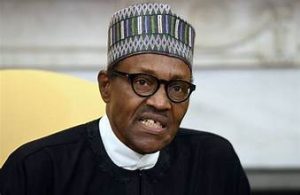 Muhammadu Buhari
Muhammadu Buhari
Being a former President and permanent member of the Nigerian Council of States, Chief Obasanjo maintains a clear view of the state of the Nigerian petroleum industry. And when since he returned as President of the country in the third republic, he assembled indigenous technocrats from global institutions to form an economic team that initiated several recovery programmes, including revival of the petroleum industry and introduction of local content in the sector.
Typical of his note-keeping reputation, Chief Obasanjo’s revelation of missed opportunities that came with the reversal of his administration’s refinery resuscitation strategies was an insight that was highly awaited by the public. The only shortfall is that the account has not been detailed in a book!
To confirm his accounts of what transpired, our correspondent records that the Obasanjo had in 2005 during the second tenure of his administration of the government engaged oil multinationals in the country with a policy of compulsory local refining of some 50 percent of the nation’s crude oil output. The policy directive triggered a huge debate between government and investors in the upstream petroleum industry who clearly stuck to the terms of their operating licenses, which clearly did not include petroleum refining.
The Oil Producers Trade Section (OPTS) of the Organized Private Sector (OPS) had fervently argued that its members reserve the right to investment decisions, pointing at global standards in petroleum industry operations. The group had in its argument emphasized the global template for sanctity of contracts, pointing out that its members are strictly licensed for upstream play in the country.
In stepping down to table talks, Chief Obasanjo had engaged Shell in an appeal to take over the double plant Port Harcourt Refinery under a possible joint venture or operating contract. In declining the offers, Shell’s in-house orator, Precious Omoku, had cautiously dug up history of the refinery for the former president.
Omoku recounted how government had nationalized midstream and downstream investments of some foreign oil firms in the country. He mentioned defunct National Oil (now Conoil) and Unipetrol (formerly Oando and now part of NNPC Retail) as relics of nationalized assets. The aspect of nationalized assets is part of the government’s anti-investment blunders Chief Obasanjo might have deliberately left out while narrating how Shell declined his offers.
The poor state of the refineries, the call for huge revamp investment outlay and commercial issues in the operating environment formed secondary reasons why Shell declined the offer.
Subsequently, Chief Obasanjo had launched two-pronged strategic moves to shop new private investments in the refineries while dismantling disincentives in the domestic fuel market though deregulation and liberalization. And by 2007, operating equities in the refineries were auctioned to a consortium of indigenous companies led by Alhaji Aliko Dangote. But the two moves suffered fatal resistance.
Like Obasanjo narrated on television, the divestment deal was annulled by the late Yar’Adua’s administration of the federal government at the instigation of NNPC. And labour leaders led by Adams Oshiomhole fought back the domestic fuel market reforms.
In continuation of the policies of his successor, former President Goodluck Jonathan had resolutely pursued rehabilitation of the Port Harcourt Refinery.
Former Managing Director of the refinery, Dr Bafred Enjugu, told our correspondent that the government of Jonathan had contacted the original refinery builder, the Japanese Gas Company (JGC), for complete rehabilitation and upgrade of the refinery.
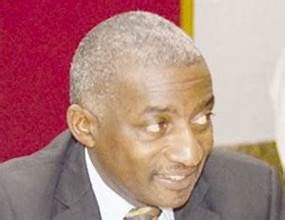 Dr Bafred Enjugu
Dr Bafred Enjugu
Unfortunately at the time, Nigeria was politically charged with violence; resulting in several bomb incidents at transport terminals in Kano; Wuse market bomb blast; and UN building bomb blast as the All Peoples Congress positioned to wrestle power from prevailing Peoples Democratic Party (PDP).
Citing escalating violence in the country, the JGC of Japan declined the offer for rehabilitation of Port Harcourt Refinery, according to Dr Enjugu. He stated that the company instead recommendd Technimont of Italy to undertake the job.
The Oracle Today gathered that Technimont did not succeed in securing the job after it piled up huge security premium on its bill, citing worsening security scenario as 2014 presidential elections approached.
Dr Enjugu narrated that NNPC had to activate the Nigerian Content policy and harnessed all internal resources including contractors and refinery staff, active and retired, in rehabilitation of the plants. The national oil company, he said, also ordered and took delivery of all required spare parts from the original refinery builders.
According to Dr Enjugu, the rehabilitation strategy entailed spontaneous upgrade since, he said, most of the parts delivered are of newer models of the refinery.
During a project observation tour taken by our correspondent at the plant, several units of the two refinery plants were already operational and churning out full range of distillates including key transportation and industrial fuel oils: low pour fuel oil, automotive gas oil, dual purpose kerosene and several other non-fuel products relevant to the petrochemical industry.
Dr Enjugu was specific that the two plants would be on full stream in record time, commending retired and active staff as well as various local contractors working on the plants.
It was based on the progress so far made that Dr Ibe Kachikwu had on assumption of office after the APC assumed control of the government of the country ordered the refinery chiefs to re-launch operations by end of 2015 or get sacked. Of course, everyone knew that Kachikwu who was functioning simultaneously as junior petroleum minister and Group Managing Director of NNPC was merely playing to the gallery. Kachikwu was poached from ExxonMobil and was struggling to sell impression of performance.
While Kachikwu was still grandstanding, it was gathered, the systems men at NNPC had a different briefing with former President Buhari who was the Minister of Petroleum Resources. The refinery upgrade was suspended and subsidy budget ballooned from N800 billion in 2014 to over N4 trillion by the time Buhari left office in 2023.
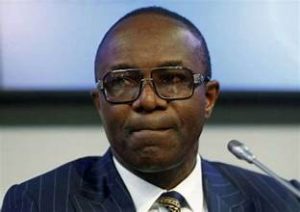 Dr Ibe Kachikwu
Dr Ibe Kachikwu
However, it appears that while the rising subsidy funds and internal consumption figures polarized the NNPC, players in the domestic fuel market and the OPS respectively; Dangote Industries Limited was making a different commercial calculation of how the subsidy funds could offset his cost of building a 650 million barrel per day private refinery.
And with Dangote’s reputation as privileged investor soaring, it was no surprise that even the NNPC which suspended rehabilitation of its own refinery took a strategic equity stake in Dangote’s greenfield refinery project.
At an engagement with senior energy reporters at a military conference facility in Abuja, the Group CEO of NNPC Limited, Mallam Mele Kyari, justified the investment in Dangote’s refinery as strategic grip on the domestic fuel market. He said the company would still take equities in other local refineries that build capacity up to 50,000 barrels per day.
However, our checks showed that NNPC is yet to take equity in the Ibigwe Refinery in Imo State where WalterSmith is pushing capacity development towards the threshold.
The questions that arise from all the refinery intrigues include why the NNPC is suddenly in great haste to rehabilitate its refineries after over 20 years the efforts were initiated by former President Obasanjo; why the company has suddenly demystified normal technical complexities and funding hurdles that were fronted as insurmountable impediments to refinery rehabilitation; why there is no proportionate supply of products from the ‘working’ refineries; and why it is taking all the efforts to convince the public that the refineries have actually started work.
Political glory appears to be driving the credit hunt.
In a media release last week, Dele Alake who speaks for President Bola Ahmed Tinubu explained that the push for rehabilitation of the refineries came from the president, expressing Tinubu’s delight that the instruction was yielding results.
In a relentless effort at convincing the public that both the Port Harcourt and Warri Refineries are back online, NNPC’s spokesmen attribute the sudden performance to the strategic vision of the president and his political party.
National Secretary of the Coalition of United Political Parties, Chief Peter Ameh, finds the political angle to the refinery rehabilitation narrative offensive, warning in a media report surveyed by The Oracle Today that “the NNPCL must learn how to do things the right way and avoid politicizing everything, as this is why our economy has nosedived.”
“That is simply the NNPCL’s usual way of prioritizing politics over issues that affect the lives of ordinary Nigerians,” he was quoted in a published report.
Compare with the Dangote Refineries which actually played similar intrigues and held several commissioning ceremonies. The major difference is that the public knew exactly when politics ended and when marketing of Dangote Refinery’s products actually kicked off.
Today, the prevailing complaints against Dangote Refinery is brutal invasion of market niches by dismantling fuel procurement barriers for all grades of markers as the competition in the local market drills down to thin margins and spurs race for large volume turnover. With open invitation to more marketers and incentives to loyal offtakers, no one is uncertain that large volume fuel output is current at Dangote Refinery.
If the NNPC refineries were up and optimal, then it would be needless to maintain the retinue of endorsement visits to the plants. A one-off formal re-commissioning ceremony would suffice! And a deluge of offtake vessels that would traverse the seas and roads to the plants’ loading gantries would leave no one in doubt.
Spokesman of the NNPC Limited, Mr Olufemi Soneye, had admitted in numerous media releases that only the old Port Harcourt refinery currently produces distillates and naphtha, while the company imports high octane gasoline to blend with the low grade fuel to feed the market with acceptable standard of petrol.
So, if the 60,000 barrels per day old Port Harcourt refinery which cannot produce premium gasoline pumps out naphtha for blending with imported fuel, then NNPC is technically not lying. And invited visitors owe the company the obligation to testify that they saw the plant running and churning out whatever products. This situation earns the management of the national oil company the credit for resuming operations at the old refinery.
But the older refinery has never been really bad. The issue is that it has no fluid catalytic cracking unit (FCCU) and therefore cannot produce the premium motor spirit or PMS independently. It relies on the newer 150,000 barrels per day plant to complete the pms production cycle.
So, the old refinery plant has technically been in that state since 2013, and would require little or no work to restart. The rehabilitation work is primarily needed at the newer 150kbd plant which has an FCCU and is conceived to blend in the naphtha produced at the older 60kbd refinery.
There is no claim yet from the NNPC Limited that supply of fuel has resumed from the Warri Refinery and Petrochemical plant. What has circulated over the media appears more like a plant assessment activity or a test run.
It does appear therefore that NNPC is only harvesting low hanging fruits while buying time to deliver real rehabilitation results.
It is therefore in the context of this pattern of uncertainties which have grounded Nigeria’s refineries for decades that it would be difficult to interpret the prevailing stunts as credible accomplishment for the president and management of the NNPC Limited as they claim credit for bringing the plants back to performance.
Cost of fuel has remained the main inflation trigger in the economy; and the public is hopeful that displacing imports with locally refined fuel would weed off all costs related to forex procurement, freight and insurance, demurrage and sundry port charges, vessel charter and internal logistics. These cost elements occupy huge space in the templates that rule retail prices in the domestic market. Therefore, credible revamping of the local refineries would not only displace imported fuel with locally refined volumes, but will deliver effective cost relief to the domestic economy.
Thus, convincing and palpable performance of the public refineries ought to manifest in forms of enhanced market competition, quality of products, operating efficiency and consequent impact on retail prices, full value chain optimization and a rein on the inflationary jumps that strain economy.



